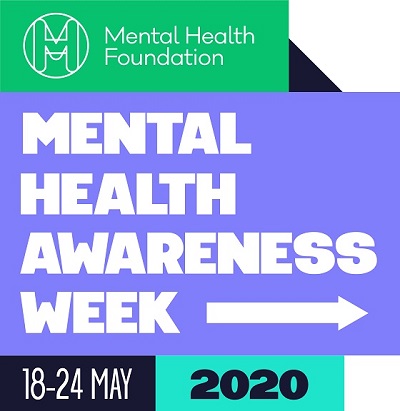We have all learned during these times of uncertainty and fear, that as well as the mental strain there is also community, support and hope.
So during Mental Health Awareness Week, the Mental Health Foundation has chosen the theme of kindness in recognition of how helping others can help reduce stress and improve emotional wellbeing.
To mark this week, we asked Jo Sharpe, a Senior Lecturer in Mental Health at De Montfort University Leicester (DMU), to list ten top tips to help maintain good mental health in these unsettling times.

1. Develop a routine – developing a routine helps us to stay grounded and provides a sense of security which helps us to adjust to changes to our lives created by COVID-19.
2. Stay connected – Staying connected with others helps to reduce the sense of loneliness and isolation that we may experience. Loneliness is linked to mental health difficulties. Connecting with others limits the impact of loneliness.
3. Take regular exercise – Exercise has multiple physical and psychological benefits. Physical activity releases the feel-good chemical Serotonin, which can help improve our mood. It also leads to the release of cortisol which helps us to manage stress.
4. Enjoy a well-balanced diet – Having a healthy, balanced diet can help to improve our mood, enhance our self-esteem and give us more energy.
5. Limit your alcohol intake – Alcohol is a depressant. It has a negative impact upon our thoughts and feelings and can lead to us becoming disinhibited and engaging in negative behaviour and coping mechanisms.
6. Get enough sleep – Lack of sleep leads to fatigue and tiredness which can increase feelings of worry, stress and low self-esteem. Establishing a routine with sleep is one of the more effective ways of improving our sleep patterns. Sleep hygiene methods can also improve our sleep patterns and quality of sleep.
7. Be grateful – Take time to remember the good things in life. People who are grateful are able to cope with stress more effectively and tend to feel happier and more fulfilled in life, compared to those who do not think gratefully.
8. Talk about your feelings – Talking about our feelings can be cathartic, it can also help us to work through our emotions and problem solve. Talk to someone you trust, who will offer balanced and supportive advice such as a friend, a lecturer, a family member or contact a mental health helpline. https://www.nhs.uk/conditions/stress-anxiety-depression/mental-health-helplines/
9. Avoid speculation about COVID – Seek any information about COVID from reliable, evidence-based sources. Scaremongering and presenting rumour and speculation as fact is rife in the current climate but only serves to increase fear and anxiety.
10. Look forward – Remember, nothing in life is permanent, the world is constantly changing. If we accept that life is fluid, we can psychologically let go of the concerns that are worrying us now. Focus on the future. What would you like to do? Who would you like to see? Where would you like to go? Think about them and set goals to look forward to for when our situation starts to change and improve.
If you would like to know more about Mental Health Awareness Week click here

Posted on Tuesday 19 May 2020